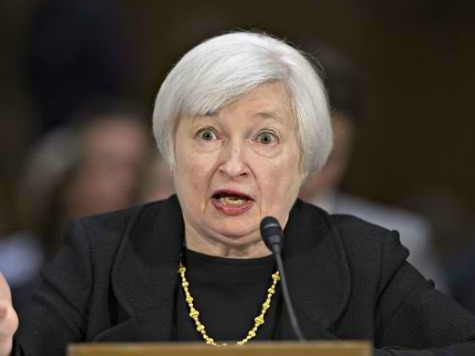The Federal Reserve is conducting an internal investigation that is to last “several months” after criticism that the Fed is improperly supervising America’s banks.
On November 21, William C. Dudley, the former chief economist of Goldman Sachs and the current president of the Federal Reserve Bank of New York was called before the Senate Banking Committee’s subcommittee for financial institutions over charges from former bank examiner Carmen Segarra that the Fed often allowed firms like Goldman Sachs to escape close scrutiny.
Left-wing Massachusetts Senator Elizabeth Warren charged that there was a “cultural problem” with the banking system and warned Dudley to fix it or else.
“Is there a cultural problem at the New York Fed? I think the evidence suggests that there is. Either you fix it, Mr. Dudley, or we need to get someone who will,” she said during the hearing.
The banking chief, though, defended his organization’s actions saying, “I wouldn’t accept the premise that there’s been a long list of failures by the New York Fed since my tenure.”
But even before he appeared before the Senate banking subcommittee, Dudley announced that the Fed was conducting a review of its practices.
The New York Fed website posted Dudley’s prepared remarks where the review was announced.
The Fed claimed it had instituted a system of “Conscientious supervision” but that the banking authority “will be working with the Board of Governors on its upcoming review of whether the LISCC Operating Committee receives information that is sufficient to reach sound supervisory decisions.” This review is to take “several months,” Dudley said in his prepared remarks.
This review came after several earlier reports by various sources claimed that the Fed was “to eager to act by consensus” and that this culture led to a “softening down” of its “criticisms and sanctions of banks that were breaking the rules.”
“Building consensus can result in whittling down of issues or smoothing exam findings,” Columbia University professor David Beim charged in a report earlier this year. “Compromise often results in less forceful language and demands on the banks involved.”
Follow Warner Todd Huston on Twitter @warnerthuston or email the author at igcolonel@hotmail.com

COMMENTS
Please let us know if you're having issues with commenting.